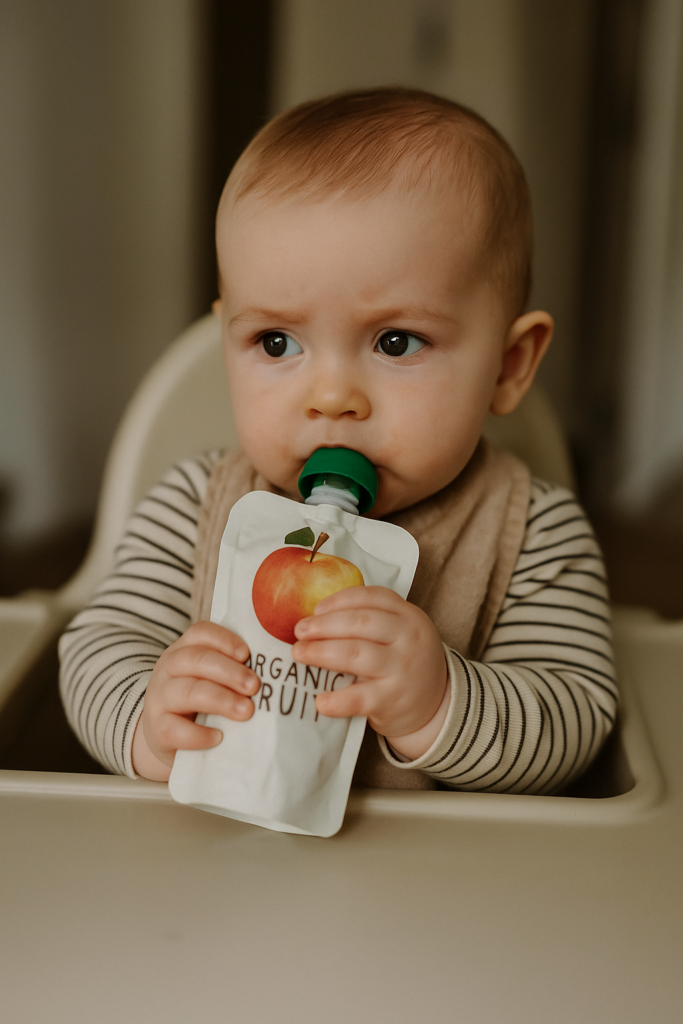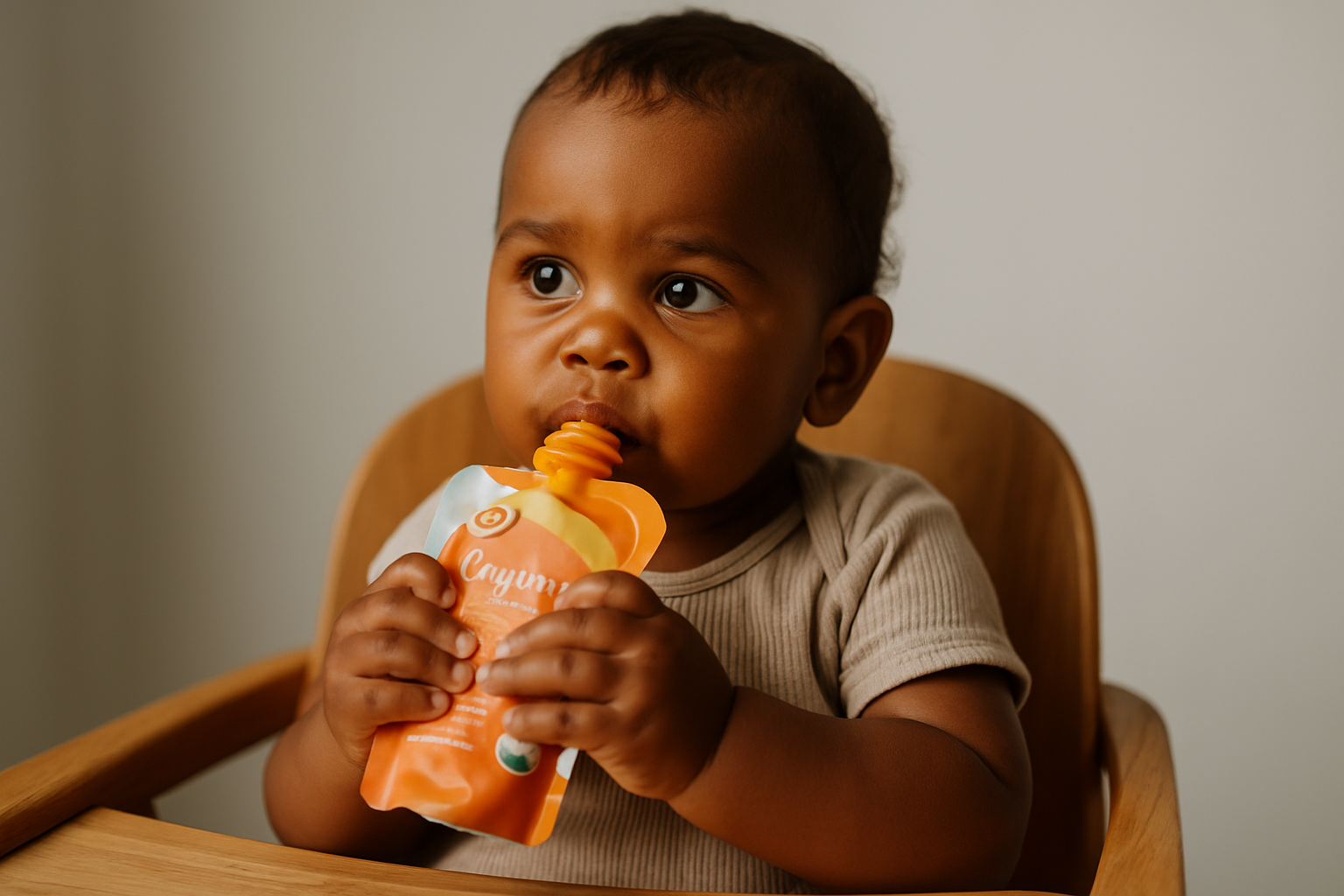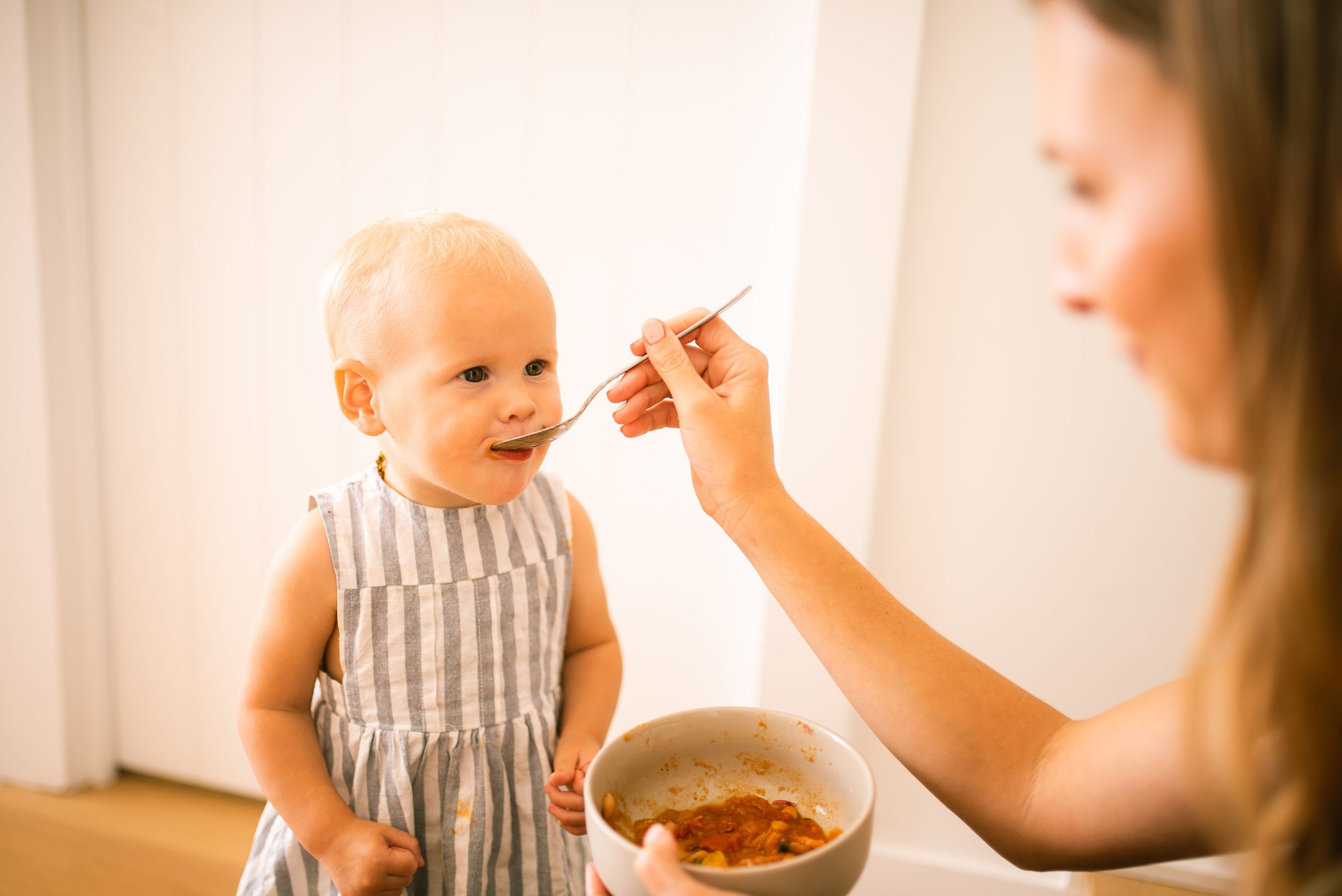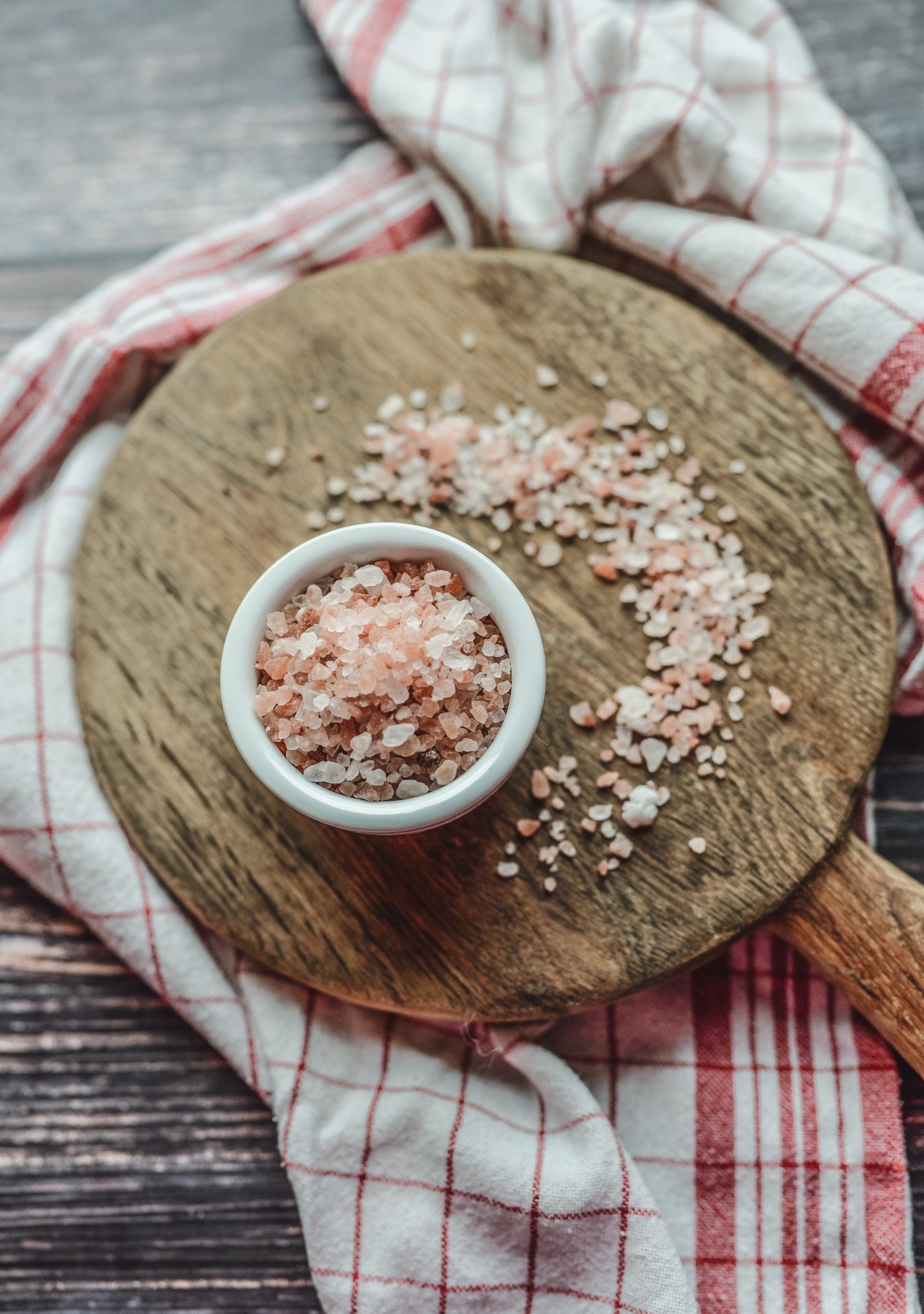Food pouches can be so convenient – especially when you’re out and about or trying to avoid a full outfit change after every snack. But are they doing more harm than good when it comes to your baby’s oral and motor development?
Here’s the good news: you can breathe a sigh of relief and throw that yoghurt pouch in your nappy bag. There’s nothing wrong with offering food via pouch from time to time. Like most things, moderation is key.
When pouches are offered occasionally as part of a varied diet that includes a range of textures and consistencies, they’re unlikely to cause any developmental concerns. From a nutritional perspective, it’s worth choosing pouches that contain a variety of food groups, nutrients, and flavours.
But… if your child is mostly eating from a pouch or spoon, and is having difficulty transitioning to finger foods or anything that requires chewing, it might be time to pause and seek support.
Why Textures Matter
Between 6 – 9 months, babies naturally begin to shift from a sucking-based pattern (like breastfeeding, bottle-feeding or pouches) toward more mature feeding patterns – like munching and rotary chewing. Pouches don’t support that development.
Every time you offer food, you’re providing a learning opportunity. If most of those opportunities come from a pouch, your baby may miss out on the vital skills they gain from touching, squishing, chewing and self-feeding.
Eating isn’t just about calories or convenience – it’s a full sensory experience. The messy stage is meant to be messy! It’s through smooshing, splattering, licking and chewing that your baby learns about different textures, tastes and motor skills.
Are Pouches Nutritious?
Pouches often look healthy on the surface – they’re usually organic and contain recognisable ingredients. But the way they’re made, and what they actually contain, tells a different story.
Most store-bought baby food pouches are predominantly made from apple or pear puree, even when they’re labelled as “beef and veggies” or “chicken and quinoa.” That fruit base makes them very sweet and means many pouches end up tasting the same, regardless of what’s on the label. This can make it harder for babies to learn to enjoy savoury flavours, which are important for a balanced palate.
Nutritionally, many pouches are low in protein, iron, and healthy fats – three things that are essential for growing babies. Because babies have small stomachs and high nutrient needs, every bite matters. When most of those bites are sweet and low in essential nutrients, it can affect their overall intake and energy levels.
On top of this, many baby food companies use pre-processed purees that have been chemically washed, ultra-high heat treated, and stored in plastic drums before being reheated again for packaging. This process can destroy delicate nutrients, healthy fats, and beneficial bacteria. What’s often left is a syrupy, sweet, shelf-stable puree that’s low in nutrients and high in natural sugars – and it can sit on the shelf for years.
How Pouches Impact Development
Speech pathologists and occupational therapists often caution that excessive pouch use may limit opportunities for oral motor development. Pouches mostly involve sucking, which uses a forward-backward tongue motion – whereas chewing helps strengthen the jaw, refine tongue control, and support the development of speech and swallowing.
Too much reliance on pouches may also delay fine motor development, self-feeding skills, gag reflex dampening, and portion regulation (babies don’t learn how much food to put in their mouth at once). Over time, this may affect food acceptance and increase picky eating.

If You’re Using Pouches Often… Try This
We get it – life is busy. Pouches can be a lifesaver when you’re juggling a nappy explosion, a preschool drop-off, travelling etc. If pouches are part of your routine, here are some gentle tweaks to support your child’s development and nutrition:
- Serve the pouch on a spoon (or pour into a bowl) where possible, especially at home
- Let your baby hold and self-feed with reusable pouches – we love the Haakaa ones (use code BOOBTOFOOD) or SUBO bottles (code BOOBTOFOOD) – they are not better for oral motor development, but they are better for the environment, and this way you can make your own purees which are going to be more nutritious than the shelf-stable options.
- Offer a wide range of foods throughout the day – textures, flavours and different food groups matter
- Embrace the mess – the more your baby can see, touch, smell and smoosh, the better!
Better On-the-Go Options
If you’re after nutritious and portable snacks, try some of these wholefood-friendly options (many are from our book Milk to Meals):
- Chia pudding
- Avocado
- Coconut yoghurt
- Gelatin gummies
- Banana
- Beetroot and tahini dip with cucumber sticks
- Roasted pear or apple
- Broccoli bites or beef + quinoa bites
- Baby’s first bread or banana bread
These give your little one texture, flavour, nutrients and opportunities to learn and explore.
Final Thoughts
We’re not here to make anyone feel guilty. Every parent needs shortcuts sometimes. But understanding how pouches work, and when they might be getting in the way of development, can help you make informed decisions for your child.




+ show comments
- Hide Comments
add a comment